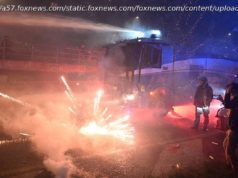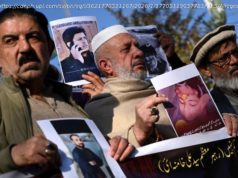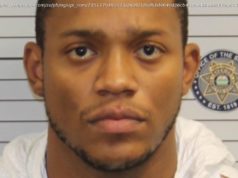On his first full day of questioning, Judge Brett M. Kavanaugh, President Trump’s nominee to the Supreme Court, would not say whether a president could be subpoenaed or pardon himself.
WASHINGTON — Judge Brett M. Kavanaugh, President Trump’s nominee to the Supreme Court, on Wednesday dodged direct questions about whether the Constitution would allow Mr. Trump to use the powers of the presidency to thwart the Russia collusion and obstruction investigations that are swirling around his administration.
Testifying before the Senate Judiciary Committee on a grueling second day of hearings, Judge Kavanaugh refused to say whether he believes Mr. Trump, as a sitting president, could be subpoenaed by Robert S. Mueller III, the special counsel, to testify in the sprawling inquiry. Answering questions in public for the first time since his nomination, the judge also declined to say whether Mr. Trump could escape legal jeopardy by pardoning himself or his associates.
“I’m not going to answer hypothetical questions of that sort,” Judge Kavanaugh said, insisting that it would be inappropriate for a Supreme Court nominee to publicly offer views on issues that might come before the court once he is a justice.
Judge Kavanaugh also declined to say he would disqualify himself from cases concerning Mr. Trump.
In a hearing that began in the morning, stretched into the night, and seesawed between intense grilling by Democrats and fawning praise by Republicans, Judge Kavanaugh sought to present himself as an evenhanded arbiter of the law rather than a partisan ideologue driven by a desire to carry out a Republican policy agenda. He parried questions, without any obvious blunders, on matters ranging from abortion to gun rights to executive powers and arcane provisions of antitrust law.
At least two more days of hearings remain, but absent a startling revelation, he appears headed to confirmation by the end of the month because Republicans remain largely united behind his nomination.
But Judge Kavanaugh did little to win over Democrats. Speaking generally, he insisted that he would be an independent justice prepared to rule against the president who appointed him. “No one is above the law in our constitutional system,” he said.
At the same time, he did not retreat from views offered in law review articles that revealed a robust conception of presidential power, views he said had been forged in large part by five years of service in the White House under President George W. Bush.
Under attack from progressives and Democrats who say he will roll back abortion rights, Judge Kavanaugh said he believes that Roe v. Wade, the 1973 landmark Supreme Court case establishing a woman’s right to an abortion, was “settled as a precedent of the Supreme Court,” and as such, deserves respect from judges. But he did not say whether he believes Roe was correctly decided. But then he noted a subsequent case, the 1992 case of Planned Parenthood v. Casey, which narrowed the scope of Roe at the same time that it reaffirmed Roe as a precedent.
Casey, which gave states the authority to regulate abortion so long as those regulations do not pose an “undue burden” on the woman, is “precedent on precedent,” he said.
On that issue and others, Judge Kavanaugh repeatedly sought to demonstrate empathy, telling senators that when it comes to understanding the real-life implications of abortion, “I don’t live in a bubble. I understand. I live in the real world.”
He defended his dissent last year in Garza v. Hargan, in which he argued that the Trump administration should have been allowed to temporarily block an undocumented teenager from having an abortion while it sought to place her with a sponsor. He said he had followed Supreme Court precedents, even as he acknowledged that there was no directly applicable case.
“I did my level best in an emergency posture,” Judge Kavanaugh said.
He said that took the teenager’s situation into account. “I tried to recognize the real-world effects on her,” he said. “I said consider the circumstances. She’s a 17-year-old, by herself, in a foreign country. In a facility where she’s detained. And she has no one to talk to. And she’s pregnant. Now that is a difficult situation.”
Senator Richard Blumenthal, Democrat of Connecticut, said Judge Kavanaugh had participated in an attempt to deny the teenager access to a constitutional right, placing her health at risk.
Protesters continued to interrupt the hearing, adding to the tension after an opening day on Tuesday in which dozens of people were arrested for loudly disrupting the proceedings. There were more arrests on Wednesday. One woman was led out of the hearing room shouting “sham president, sham justice”; another hollered, “You’re gaslighting the American people,” drowning out Judge Kavanaugh as he calmly carried on.
Democratic senators angrily railed against a swiftly moving confirmation process, accusing Republicans on the committee of refusing to make public documents that they said call into question Judge Kavanaugh’s honesty about his past congressional testimony and his record as a political operative and a lawyer in the Bush White House.
Senator Patrick J. Leahy, Democrat of Vermont, raised two Bush-era scandals with Judge Kavanaugh, and he suggested that Bush White House emails in the Judiciary Committee’s possession may contradict testimony the nominee made more than a decade ago — if only they could be released publicly.
One of the scandals was the disclosure in late 2003 and 2004 that a Republican Judiciary Committee staff member had infiltrated the Democrats’ confidential internal files about which of President George W. Bush’s judicial nominees to try to block and with what tactics. The other was the disclosure that after the Sept. 11,2001, terrorist attacks, the Bush administration had secretly ordered the National Security Agency to intercept Americans’ phone calls and emails without obtaining the judicial warrants seemingly required by the Foreign Intelligence Surveillance Act.
At his appeals court confirmation hearing in 2006, Judge Kavanaugh — who had worked as an associate White House counsel in the Bush administration — told senators that he did not know anything about the infiltration of Senate Democrats’ files on judicial nomination fights or about the warrantless wiretapping program before they eventually became public.
But Mr. Leahy indicated that documents marked “committee confidential” — and kept secret from the public — provide evidence that Judge Kavanaugh had contact with Manuel Miranda, then a Republican staff member on the Judiciary Committee, and had more involvement with the surveillance program than he had acknowledged.
“I am concerned because there is evidence that Mr. Miranda provided you with materials that were stolen from me,” Mr. Leahy said. “And that would contradict your prior testimony. It is also clear from public emails — and I’m refraining from going into nonpublic ones — that you had reason to believe materials were obtained inappropriately at the time.”
Judge Kavanaugh insisted that everything he had testified to before was “100 percent accurate,” but indicated that he was not sure what Mr.






